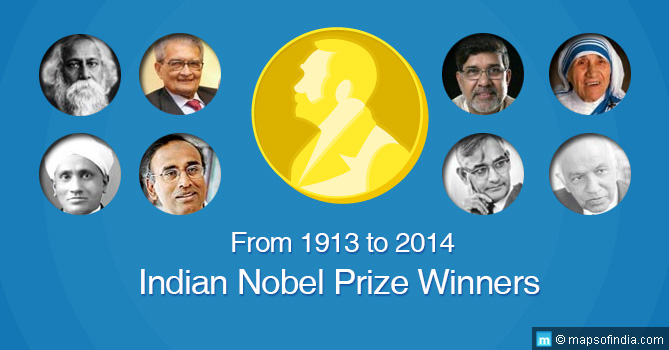
Indian-American economist Abhijit Binayak Banerjee has won the Nobel Memorial Prize in Economic Sciences 2019 along with his wife Esther Duflo and Harvard University’s Michael Kremer. The trio has been given the Nobel Prize for the experimental approach used to alleviate global poverty.
In the statement, the Nobel Committee said that the research conducted by the Laureates of 2019 had helped considerably in fighting global poverty. The new experiment-based approach helped in transforming developmental economics in just 20 years.
Abhijit Banerjee: His India Connection
– The 58-years old Abhijit Banerjee was born on February 21, 1961, in Dhule (India) to two scholars: Dipak Banerjee (Presidency College’s Head of the Department of Economics) and Nirmala Banerjee (the Centre for Studies in Social Sciences’ professor of economics).
– He did his schooling at South Point School, Kolkata.
– In 1981, Abhijit completed his graduation (BSc in Economics) from the prestigious Presidency College under Calcutta University.
– In 1983, he completed his MA in Economics from Delhi’s Jawaharlal Nehru University.
Abhijit Banerjee: Accomplishments of the New Nobel Laureate
– Abhijit Banerjee is the Ford Foundation International Professor of Economics at MIT (Massachusetts Institute of Technology).
– He was among the panel of experts, which was named by UN Secretary-General Ban Ki-Moon in 2013 for updating the Millennium Development Goals after 2015.
– The Kiel Institute of the World Economy awarded Banerjee with the Bernhard-Harms-Prize in 2013.
– In the social sciences category of economics, he received the Infosys Prize 2009.
– He co-founded Abdul Latif Jameel Poverty Action Lab (J-PAL) along with his French-American economist wife Laureate Esther Duflo, and Harvard University’s Sendhil Mullainathan in 2003. It aims to “reduce poverty by ensuring that policy is informed by scientific evidence”, done through “research, policy outreach, and training”.
– His other vital achievements include:
- Research affiliate of the Innovations for Poverty Action
- Member of the Consortium on Financial Systems and Poverty
- Bureau for the Research in the Economic Analysis of Development’s President
- The National Bureau of Economic Research’s Research-Associate
- Research Fellow the Centre for Economic Policy Research’s
- Kiel Institute’s international research fellow
- Econometric Society’s fellow
- Fellow of American Academy of Arts and Sciences
- Served in the academic advisory board of Plaksha University
- Abhijit went on to complete his Ph.D. in economics from Harvard University. “Essays in Information Economics” was his doctoral thesis.
- Abhijit has taught at the prestigious Harvard University and Princeton University.
- In 2004, he was elected by the American Academy of Arts and Sciences as a fellow.
New Experimental Approach: An Overview & Success Story
The Banerjee-Duflo-Kremer approach to poverty alleviation emphasizes the use of research-based field experiments, thereby bringing three things together:
1. The laboratory-style randomized principles,
2. The controlled trial method, and
3. Empirical economics
The MIT professors and husband-wife duo, often with Michael Kremer from Harvard University, performed experiment-based field experiments in Nigeria, Indonesia, India, and many other countries.
This approach dominates the current developmental economics, which tries to find out the best possible way to fight global poverty. The 2019 Nobel laureates for economics have studied a wide array of global poverty-related topics such as education, health-care provision, gender attitudes, and agriculture.
Based on their findings and research, they develop target-oriented antipoverty programs that are smaller and more manageable. The ability to fight poverty in practice has improved drastically. The programs of remedial tutoring in schools, as formulated by the research-based approach, has benefitted over 5 million children.
2019’s Nobel Prize in Economics is Notable for Many Reasons
– Abhijit Banerjee is the third non-white male to receive the Nobel Prize in economics (actually called 2019 Sveriges Riksbank Prize in Economic Sciences in Memory of Alfred Nobel). The other two were Amartya Sen in 1998 and Arthur Lewis in 1979. Abhijit is also the second Bengali to receive this award after Amartya Sen.
– It is the second instance in the history of the economics prize that the top prize has been awarded on a work done on “poverty”.
– Esther Duflo is the 2nd woman who has been awarded the Nobel Prize for economics in the last 50 years. Duflo is also “the youngest person ever to receive the Nobel in economic sciences.”
– All the three winners of the 2019 Nobel Prize for Economics are among the leading 1% in terms of research work’s popularity (as per Research Papers in Economics’s data). The worldwide rankings of Abhijit Banerjee, Esther Duflo, and Michael Kremer are 163rd, 3rd, and 260th, respectively.
Abhijit Banerjee has co-authored the books named “Poor Economics” and “Good Economics in Hard Times”. The later book will come out by October 2019.
Related Link:




